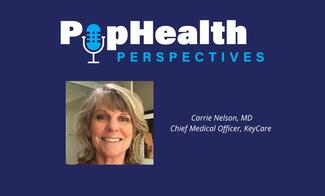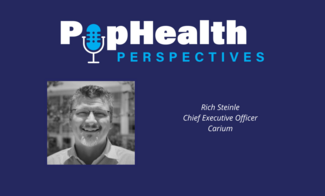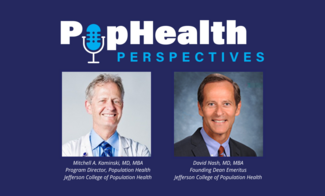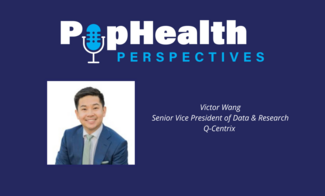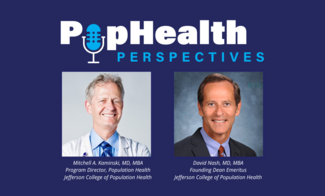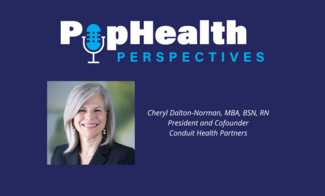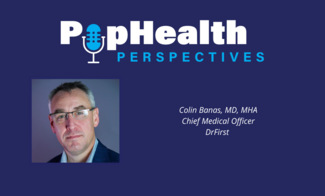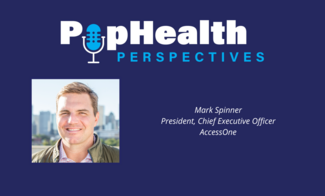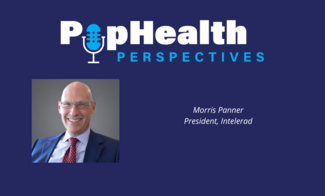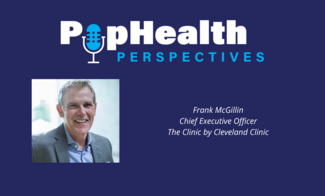AI Diagnostics in Health Care: Promise, Peril, and the Path Forward
 Like many people, I look forward to the day when I can call a self-driving taxi to drive me home from the pub. I’m less excited about road accidents involving working remote vehicles, which, I have no doubt, will become global media events.
Like many people, I look forward to the day when I can call a self-driving taxi to drive me home from the pub. I’m less excited about road accidents involving working remote vehicles, which, I have no doubt, will become global media events.
We have become used to people being seriously injured or even killed as a result of careless or reckless human behavior, but we will not tolerate the same if the perpetrator is a machine. For reasons both obvious and more nuanced, we regard automated misadventure as far more catastrophic than anything done by flesh and blood.
The same applies in a medical context, which is bad news when you consider that, in the not-too-distant future, seeking health care attention from a human practitioner will be the exception, rather than the norm.
The rise of home-diagnostics, automated health care, and now artificial intelligence (AI) is moving us ever closer to a stage in which, for most public health delivery services, the initial triaging of all nonemergency cases could be done remotely.
AI-powered health apps that claim to diagnose conditions in real time are transforming how we approach health care. From symptom checkers to wearable electrocardiography monitors and AI stethoscope apps, these tools promise early diagnoses and personalized health care at our fingertips.
The British National Health Service’s new "Doctor in Your Pocket" initiative represents a significant leap into AI-driven health care, offering patients instant access to diagnostic tools and health advice via smartphones.
These tools promise to streamline triage, reduce waiting times, and empower users with real-time insights into their health—from symptom checking to chronic disease management.
But as these technologies become more sophisticated, a critical question emerges: Are they genuinely helpful, or do they introduce new dangers? And what happens when they go wrong?
The Promise of AI Health Technology
AI-driven health diagnostics are no longer science fiction. Today, apps can analyze heart rhythms, detect skin cancer from photographs, and even predict potential health risks based on lifestyle data. Wearable devices like smartwatches monitor vital signs continuously, alerting users to irregularities that might indicate serious conditions.
For many people, these tools offer unprecedented access to medical insights, reducing the need for frequent primary care visits and enabling earlier interventions. The potential benefits are significant: AI can process vast amounts of data far more quickly than a human clinician, identifying patterns that might otherwise go unnoticed.
In cardiology, for example, AI-powered imaging can detect subtle abnormalities in heart function, potentially preventing myocardial infarctions before they happen. Similarly, AI algorithms in radiology can flag early signs of cancer in radiographs and magnetic resonance images with remarkable accuracy.
For patients in remote or underserved areas, AI diagnostics could be life changing. A smartphone app that detects atrial fibrillation or diabetic retinopathy could bridge gaps in health care access, particularly in rural and remote areas where medical professionals are scarce. The convenience is undeniable—why wait for a doctor’s appointment when an AI can provide instant feedback?
The Hidden Risks of AI Diagnostics
Yet, for all their promise, AI health tools come with serious risks. One of the most pressing concerns is misdiagnosis. AI models are only as good as the data on which they are trained, and if that data is flawed or incomplete, the results can be dangerously inaccurate.
A study by Stanford Medicine found that some AI diagnostic tools performed well in controlled lab settings, but faltered in real-world scenarios, where patient diversity and environmental variables introduced unpredictability.
False positives and false negatives are another major issue. An AI app that incorrectly reassures a user that their chest pain is harmless could delay critical treatment, while one that falsely flags a benign mole as malignant might trigger unnecessary anxiety and even medical procedures. Unlike human clinician, AI lacks the ability to contextualise symptoms—it doesn’t know if a patient has a history of health anxiety or if their symptoms align with common, nonthreatening conditions.
Regulation is another gray area. Should AI diagnostic apps be classified as medical devices, subject to the same rigorous testing as traditional diagnostics? In many jurisdictions, the answer is unclear. The US Food and Drug Administration (FDA) has begun tightening oversight, but gaps remain. Without standardized validation, consumers may unknowingly rely on unproven—and potentially hazardous—tools.
Ethical and Legal Dilemmas
Beyond accuracy, AI health tools raise thorny ethical and legal questions. If an AI app provides faulty advice that leads to harm, who is liable—the developer, the health care provider endorsing it, or the user who misinterpreted the results? Legal frameworks have yet to catch up with these scenarios, leaving patients and providers in uncertain territory.
Data privacy is another major concern. Many AI health apps collect sensitive personal information—heart rate, sleep patterns, even genetic predispositions. If this data is mishandled or breached, it could be exploited by insurers, employers, or malicious actors. Imagine a scenario where an insurer adjusts premiums based on AI-predicted health risks, or an employer screens job candidates using wellness data from their wearables. The potential for discrimination is alarming.
Then there’s the psychological impact. The ease of self-diagnosis can fuel "cyberchondria," a modern form of health anxiety where users obsessively research symptoms, often convincing themselves of worst-case scenarios. Unlike a physician who can offer reassurance, an AI tool may simply present probabilities, leaving users spiralling into unnecessary fear.
The Future of AI in Health Care
So, where does this leave us? Will AI physicians replace general practitioners, or will they remain assistive tools? The most likely scenario is a hybrid model—AI handling routine diagnostics and data analysis while human physicians focus on complex cases, patient communication, and emotional support.
Human oversight remains crucial. AI can identify a potential tumour, but a physician must interpret that finding in the context of the patient’s overall health. AI can suggest treatment options, but a physician must weigh risks, discuss alternatives, and consider the patient’s values and preferences.
The challenge for regulators, developers, and health care providers is to strike a balance—harnessing AI’s potential while safeguarding against its pitfalls. Robust validation, transparent algorithms, and clear accountability frameworks will be essential. Patients, too, must approach AI diagnostics with caution, using them as supplements—not substitutes—for professional medical advice.
Proceed With Caution
AI health diagnostics are here to stay, and their capabilities will only grow. They hold immense promise for improving health care accessibility and efficiency, but they also introduce new risks that cannot be ignored. The key lies in responsible development, rigorous oversight, and informed usage.
As we integrate these tools into our lives, we must remember that AI is a powerful assistant—not an infallible authority. The best health care will always be a partnership between cutting-edge technology and human expertise. Until then, the "doctor in your pocket" should be treated not as a replacement for real medical care, but as a tool to enhance it—used wisely and with a healthy dose of skepticism.
About the Author
Ivor Campbell is chief executive of Snedden Campbell, a specialist recruitment consultant for the global medical technology industry.
© 2025 HMP Global. All Rights Reserved.
Any views and opinions expressed are those of the author(s) and/or participants and do not necessarily reflect the views, policy, or position of Integrated Healthcare Executive or HMP Global, their employees, and affiliates.





